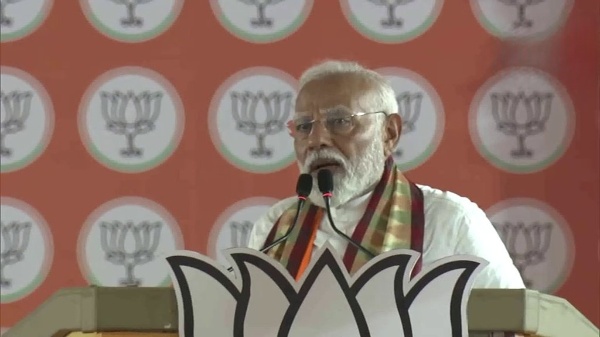ChatGPT
Title: Prime Minister Modi’s Address in Kendrapara: BJP’s Governance Vision vs. Congress’ Legacy
Kendrapara, Odisha – May 29, 2024:
Prime Minister Narendra Modi delivered a thought-provoking address to the public in Kendrapara, Odisha, reflecting on the contrasting narratives of governance between the Bharatiya Janata Party (BJP) and the Congress party. In his speech, Modi juxtaposed what he characterized as decades of alleged corruption under Congress rule with the developmental agenda pursued by his government over the past decade.
Addressing a diverse audience, Modi asserted, “The country has seen decades of the Congress rule as well a decade of the BJP rule. The decades under Congress rule saw nothing but big scams…and the last ten years under the Modi government were all about development.”
Modi’s remarks encapsulated a recurring theme in BJP’s discourse, portraying his party as the torchbearer of progress and accountability, while painting the Congress era as mired in corruption and inefficiency. By highlighting the purported failures of previous administrations alongside his government’s purported achievements, Modi aimed to reinforce the BJP’s narrative of transformative governance and consolidate public support ahead of upcoming electoral contests.
Throughout his address, Modi showcased a multitude of initiatives and policy measures implemented by his government, spanning infrastructure projects to social welfare programs, as evidence of his commitment to fostering inclusive growth and prosperity. Key initiatives such as ‘Make in India’, ‘Swachh Bharat Abhiyan’, and ‘Ayushman Bharat’ were heralded as milestones in the BJP’s vision for a dynamic and resilient India.
However, Modi’s assertions were met with skepticism from critics, who argue that the BJP’s governance record is more nuanced than the binary portrayal presented in his speech. Opposition parties and political analysts have raised concerns about issues such as economic inequality, environmental degradation, and the erosion of democratic institutions, challenging the BJP’s narrative of unmitigated success.
Moreover, Modi’s address unfolded amidst the backdrop of a nation grappling with the far-reaching implications of the COVID-19 pandemic, which exacerbated pre-existing socio-economic fault lines and underscored systemic vulnerabilities. As India navigates through the complexities of recovery and renewal, Modi’s rhetoric serves as a catalyst for dialogue, stimulating conversations about the imperatives of governance and the future trajectory of the nation.
In conclusion, Prime Minister Narendra Modi’s address in Kendrapara, Odisha, provided a platform for introspection on the contrasting narratives of governance in India, from the alleged malfeasance of the Congress era to the developmental agenda championed by the BJP. As the nation charts its course forward, the discourse surrounding governance, accountability, and inclusive growth takes on heightened significance.
Modi’s impassioned rhetoric underscores the enduring quest for progress and prosperity, as citizens engage in a critical examination of competing visions of India’s future. Whether Modi’s assertions resonate with the electorate remains to be seen, but his speech in Kendrapara serves as a poignant reminder of the ongoing debates that animate India’s political landscape.



